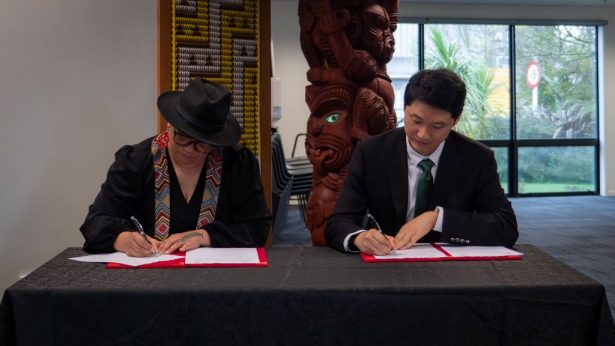The New Zealand School Boards Association (NZSBA) has voiced strong opposition to the Government’s proposal to remove references to Te Tiriti o Waitangi from section 127 of the Education and Training Act 2020.
NZSBA President Meredith Kennett says the move would weaken both the legal foundation and the practical role of school boards as Crown entities — and could harm social cohesion across communities.
“As Crown entities, school boards absolutely have a responsibility to understand and give effect to Te Tiriti o Waitangi,” Kennett said. “The suggestion that this clause makes no difference simply isn’t true.”
According to Kennett, the inclusion of the Treaty clause has helped school boards better understand their governance responsibilities and, in many cases, prompted meaningful policy changes to reflect the needs of Māori whānau and wider communities.
Challenging the “Volunteer” Label
Kennett also pushed back against comments from Education Minister Erica Stanford, who referred to board members as “volunteers.”
“Board members are elected directors there to do a job,” she said. “They carry serious legal obligations, representing both their community and the Crown in governing their schools.”
A Clause That Builds, Not Divides
Far from being divisive, Kennett described the Treaty clause as a unifying and practical part of school governance.
“It causes no harm to have it there, but causes plenty of harm — including to social cohesion — by removing it,” she said.
She added that understanding Te Tiriti o Waitangi is central to improving outcomes for all learners, particularly Māori students.
“If you want to understand attendance and achievement data for rangatahi Māori, you have to understand our history — and that includes Te Tiriti,” Kennett explained. “That understanding leads to better, more inclusive school policies.”
Concerns Over Legislative Process
Kennett also questioned the process behind the Government’s decision, noting that there was no official consultation or public notice before the proposal was introduced during the Committee of the Whole House stage.
“Introducing such a significant change without consultation is deeply questionable,” she said.
Reports suggest that the Ministry of Education did not recommend removing the clause, and Kennett urged the Government to reconsider.
“Boards are doing the hard work of understanding their communities and improving outcomes for all students,” she said. “This clause has supported that work, not hindered it.”
Source: https://www.scoop.co.nz/stories/ED2511/S00005/school-boards-question-removal-of-te-tiriti-clause.htm



